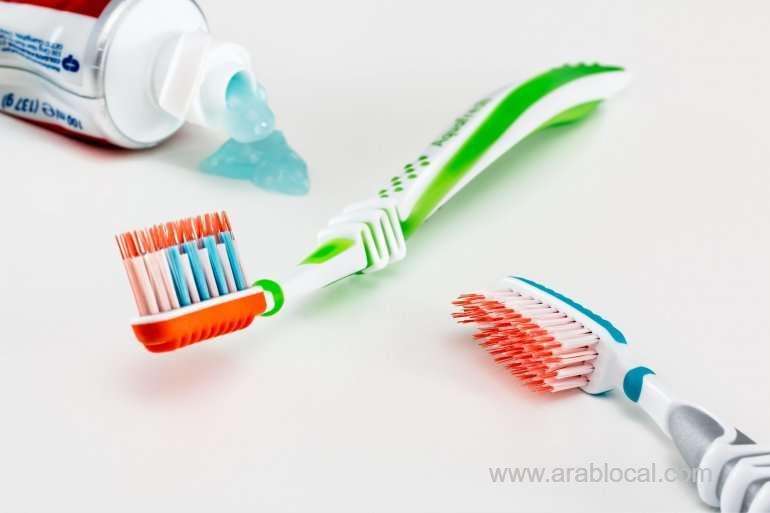
Doha: The Ministry of Public Health (MoPH) published a notice to patients regarding urgent or emergency dental care for adults during Covid-19.
In compliance with the Ministry of Public Health directive to reduce the risk of COVID-19 infection spread, the Hamad Dental Services must restrict patient care until further notice.
"All routine appointments are cancelled and services are limited to urgent and emergency visits only during this period of the pandemic," the Ministry said.
In order to be seen at the clinic, a patient must have one or more of the following conditions:
• Severe toothache pain (not just a twinge)
• Swelling of your gums, face, or neck
• Bleeding in your mouth that does not stop
• Infection or a substantial risk of it
• Trauma (such as a broken tooth)
However, if the patient's condition includes one of more of the above criteria, the Ministry urged them to call #16000.
If a patient is feeling sick before coming to see a dentist at the clinic, such as symptoms of respiratory illness such as fever, cough, shortness of breath and a sore throat, the patient must call the COVID-19 hotline #16000 first for advice on how to proceed.
Apart from this, the Ministry also mentioned a number of dental conditions as well as tips and remedies to prevent them from occurring.
Dental pain (toothache):
• Take painkillers as needed (and prescribed).
• Maintain good oral hygiene and use a toothpaste containing fluoride.
• Decrease the consumption of sugar (in sweet food and drink) to avoid tooth decay.
Bleeding Gums:
This is a common and mild form of gum disease, which can happen as a result of neglecting oral hygiene.
• Brush your teeth and gums at least twice a day.
• Use dental floss and other cleaning tools to clean between your teeth.
• Use an antiseptic mouthwash regularly
• Avoid smoking.
Bleeding after extraction:
It is not uncommon to ooze blood (with saliva) from the extraction for 24-48 hours after surgery.
• Avoid vigorous mouth rinsing at the day of tooth removal.
• Firmly bite down on a clean cloth or gauze for 30 minutes. If this does not stop bleeding, call your dentist.
Pain after extraction:
• Take painkillers as needed (and prescribed).
• From the second day after extraction you can gently rinse your mouth with salt and water (a tea spoon of salt mixed in a glass of warm water).
• If pain increases after a week, call your dentist.
Loose Dentures:
• Sharp bits can be smoothed out using a nail file.
• A denture adhesive (such as a Corega Ultra cream, and Kin cream) which may be found in some pharmacies can be used as a temporary fix for loose dentures.
• If the denture is still causing pain, stop using it until you can see your dentist.
Lost or loose crown/veneer:
• A loose crown or veneer rarely causes any pain – best to remove it and keep it safe until you see your dentist.
• Keep good oral hygiene to reduce the risk of dental decay.
• Avoid sugar (sweet food and drink) to prevent further decay of the tooth beneath the crown.
Fractured tooth/filling:
• Regular painkillers can be used as needed.
• Maintain good oral hygiene.
• Decrease the consumption of sugar (sweet food and drink) to avoid any more tooth decay, which can result in tooth pain.
Ulcers:
• Use an ointment gel on the ulcer, especially before meals.
• Maintain good oral hygiene.
• Take painkillers if needed.
• Rinse with salt and water to prevent infection (a tea spoon of salt mixed in a glass of warm water).
• Use an oral rinse with an anti-inflammatory analgesic effect (please check with a pharmacist).
Sensitive Teeth:
• This can happen as a result of receded gums, large fillings or dental decay.
• Use toothpaste for sensitive teeth of any brand on the sensitive areas and leave it overnight.
• Regular painkillers can be used.
• Maintain good oral hygiene.
• Decrease the consumption of sweet food to avoid any more tooth decay.
• Rinse with salt and water (tea spoon of salt mixed with a glass of warm water).
Regular painkillers:
Adults:
• Paracetamol 1000mg up to 4 times daily can be used.
• Ibuprofen 400mg 3 time daily (if you suspect that you have been exposed to the coronavirus, it is advised to Ibuprofen as some research suggests that Ibuprofen can worsen the health state of individuals with the coronavirus in addition to aspirin derivatives).
• NB: Ibuprofen and Paracetamol can be taken alternatively for maximum pain control (please check with the pharmacist).
Children:
• Dose of medication depends on your child’s weight.
• NB: Ibuprofen and Paracetamol can be taken alternatively for maximum pain control (please check with the pharmacist).
• Call your pharmacist or dentist over the phone for advice if you are not sure what amount of dose to take.
General advice:
• Patients are advised to call their dentist if there is any change in the nature of their problems
• Follow up with your dentist in the future may be required in order to resolve the problem completely.
• Until then – keep your mouth healthy to help keep you healthy.
SOURCE: THEPENINSULAQATAR